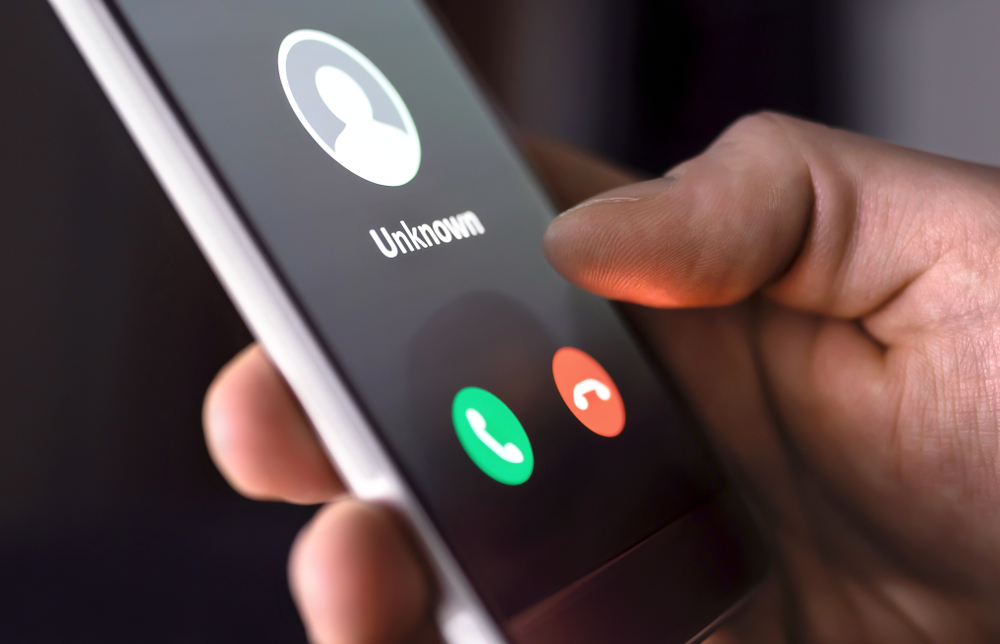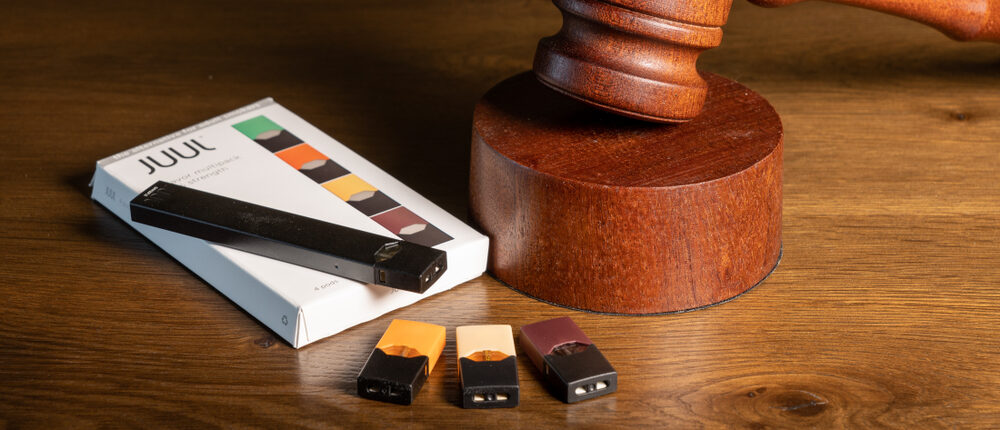We’ve all been there — you rush to answer your ringing phone only to be met with a robot voice on the other end offering you the deal of a lifetime on an overseas vacation. Except you didn’t sign up for any deal, and you’ve listed your number on the do-not-call list.
In addition to being annoying, calls like these are often against the law, and consumers may be eligible to receive compensation if they’ve been negatively affected by telemarketing calls, thanks to a law: the Telephone Consumer Protection Act of 1991.
- What Is TCPA?
- Prohibited Calls
- History of Major TCPA Settlements
- TCPA and Robocall Statistics
- What Should I Do if I Have Been Affected by Calls That Violate the TCPA?
- How Do I Know if I Qualify to Be Part of a TCPA Call Lawsuit?
- How Does a TCPA Call Lawsuit Work?
- How Long Does It Take to Settle a TCPA Call Lawsuit?
- What Is the Statute of Limitations on TCPA Call Lawsuits?
- How Much Can You Get From a TCPA Call Lawsuit?
- How Long Does It Take to Get Your Money After a TCPA Call Settlement?
What Is TCPA?
Congress in 1991 passed the Telephone Consumer Protection Act — TCPA for short. The law places restrictions on phone calls made through telemarketing, as well as the use of automated dialers and prerecorded messages.
The law establishes several rules by which telemarketers and other businesses must abide. It also gives consumers multiple methods of indicating they don’t want to receive these communications and establishes the price a business may pay if it’s found to have violated the TCPA.
Prohibited Calls
There are some exceptions, which you can read about here, but broadly, the TCPA establishes several restrictions businesses and solicitors must abide by when communicating with consumers via phone, text, and fax.
It’s important to note that these rules don’t apply if a consumer gives express consent to receive communications. Most solicitors are prohibited from:
- Contacting consumers before 8 a.m. or after 9 p.m. local time
- Contacting consumers who are on the solicitor’s internal do-not-call list or the National Do Not Call Registry
- Withholding their name, the name of the individual or business on whose behalf they’re calling, and the number or address of the business or individual
- Using an artificial voice or recording in their calls
- Making calls that engage two or more phone lines of a business
- Sending unsolicited advertising faxes
Communication Methods That Are Covered by the TCPA
When it was first adopted, TCPA applied to landline phones, but as fewer and fewer people use landlines, updates to the law have extended it to mobile phones as well. But calls aren’t the only means of unwanted communication that could lead to a violation of the TCPA.
As we mentioned, SMS text messages, phone calls, and faxes all are covered by the TCPA, which means that spammy, solicitous text messages you get may be a violation of the law for which you could seek financial compensation.
Violations of the TCPA
The law also establishes means for consumers to sue companies that violate the TCPA. For each violation, a person may sue for up to $500 per violation. Or they could sue to recover actual monetary loss, depending on whether that potential loss is greater than the total using the $500-per-violation method.
In addition to suing for financial compensation, consumers may seek an injunction to prevent the telemarketer from operating — and in some cases, consumers may seek both monetary compensation and an injunction.
The TCPA also establishes a second, more serious category of violation — willful violations. In cases like this, consumers may sue for up to three times the damages for each violation. That means they could sue for $1,500 per violation instead of $500 in cases where unwanted communications are determined to be deliberate violations of the law.
Exceptions to the TCPA
Not every call you receive is a potential TCPA violation. Several types of calls are excluded from these restrictions, as are certain organizations.
Most notably, nonprofit organizations are exempt from some aspects of the TCPA’s consumer protections. However, they are still prohibited from calling people whose numbers are on the National Do Not Call Registry, and they still are required to obtain permission before making robocalls.
Other common exceptions include calls made for non-commercial purposes, emergency calls, or commercial calls that are part of legitimate efforts to collect a debt.
Consent to Receive Calls
The TCPA establishes a standard that commercial solicitors must meet before they can make telemarketing calls or other communications: They must receive express consent. This may seem straightforward, but this is one of those times in which the phrase “Check the fine print” is particularly appropriate.
After all, few businesses will ask, “Hey, is it OK if we call you all the time with advertising messages?” Companies, particularly less-reputable ones, can take advantage of the murky nature of the modern, hyper-connected consumer landscape.
Solicitors have argued in some cases that consumers consented to receiving communications simply by providing their number in the first place, asserting that any reasonable consumer would assume that a business or organization asking for a phone number would intend to use that number at some point.
Number Spoofing and the TCPA
As technology advances, aspects of the TCPA are updated, either by the FCC or through court rulings. One such recent update is related to illegal robocalls that use number spoofing to mislead consumers into answering.
In June 2020, the FCC initiated an effort to fine a Texas-based company $225 million for what the agency alleged were about 1 billion robocalls to illegally spoofed numbers. The fine would be the largest in the history of the FCC.
History of Major TCPA Settlements
In addition to individual consumers making TCPA claims against solicitors, companies have faced major class-action lawsuits over their telemarketing practices, and in some cases, those lawsuits have led to major settlements.
Here’s a look at some of the biggest TCPA settlements in recent history, though it’s important to note that for each of them, the claim window has closed:
- Dish Network: $61 million, 2017
- Uber: $20 million, 2017
- Ocwen Financial: $17.5 million, 2017
- com/AIC Communications: $32.4 million, 2017
- ccAdvertising: $32.4 million, 2017
- Cynosure Inc.: $16 million, 2017
- US Coachways: $49.9 million, 2016
- Caribbean Cruise Line: $76 million, 2016
- Midland Credit: $20.5 million, 2016
- American Eagle: $14.5 million, 2016
- Wells Fargo: $46.5 million, 2015-17
- Life Time Fitness: $15 million, 2015
- Capital One: $75.5 million, 2014
- AT&T Mobility: $45 million, 2014
- Bank of America: $32 million, 2014
- HSBC: $40 million, 2014
TCPA and Robocall Statistics
Unsolicited telemarketing communications are the basis of most consumer complaints made to the FCC each year, and the Federal Trade Commission (FTC), which administers the National Do Not Call Registry, receives millions of complaints about registry violations each year.
For the first nine months of 2020, the FTC received more than 2.8 million Do Not Call Registry complaints, and nearly 2 million of those were robocalls. For the 2020 fiscal year, population-adjusted rates of DNC complaints were highest in Arizona, Virginia, and Maryland and lowest in Mississippi, Alaska, and Indiana.
Complaints Per 100,000 People
- Arizona 1,770
- Virginia 1,668
- Maryland 1,644
- Delaware 1,608
- Colorado 1,504
- Nevada 1,502
- Illinois 1,495
- New Jersey 1,476
- Ohio 1,444
- Oregon 1,367
- Pennsylvania 1,367
- Connecticut 1,367
- Florida 1,365
- New Hampshire 1,326
- Michigan 1,289
- New Mexico 1,270
- Rhode Island 1,234
- Idaho 1,230
- North Carolina 1,224
- Washington 1,197
- Wisconsin 1,190
- Vermont 1,186
- California 1,178
- Kansas 1,173
- New York 1,165
- Minnesota 1,142
- Utah 1,110
- Nebraska 1,103
- Georgia 1,102
- Texas 1,091
- Montana 1,088
- Massachusetts 1,082
- Tennessee 1,060
- Iowa 1,005
- Wyoming 981
- South Carolina 971
- Maine 970
- Alabama 929
- Kentucky 924
- West Virginia 922
- Oklahoma 875
- Hawaii 840
- Arkansas 839
- South Dakota 795
- Louisiana 713
- Missouri 645
- North Dakota 589
- Indiana 566
- Alaska 439
- Mississippi 430
According to the FTC, about 241 million numbers are actively registered on the National Do Not Call Registry. While that seems like it would amount to most Americans, each number is considered separately, so it’s not fair to make a one-to-one comparison. Still, previous surveys indicated that about 70% of people had listed their numbers on the registry.
But regardless of whether their numbers are listed on the registry, consumers should keep in mind that almost all robocalls are a violation of the TCPA.
What Should I Do if I Have Been Affected by Calls That Violate the TCPA?
First things first. If you’re not listed on the National Do Not Call registry, you can sign up for free. If you’re not sure whether your number is listed, you can verify your registration here. If you are continuing to receive calls that violate TCPA protections, the next step is to report these calls to federal authorities.
Both the FCC and the FTC accept complaints related to unwanted calls and communications, and in the case of the FTC, these complaints may lead to action against habitual violators of consumer protections. While the FCC does not investigate individual complaints, the agency does track complaints to help inform policy and administrative changes to the TCPA.
Once you’ve made sure that your number is listed on the National Do Not Call registry, if you continue to receive unwanted calls, your next best step may be to file a lawsuit against the violators. That could include multiple companies, as many solicitors hire telemarketers on their behalf.
However, it’s important to remember that the TCPA establishes a limit of $500 for most violations of the law, which means that unless you have received many calls and/or can establish that the caller is willfully violating the law, hiring an attorney to make your case may not be a wise use of your time (and potentially money).
But if you are being inundated with these calls, be sure to keep a record of them, including saving any voicemail messages you may receive. These may assist you in any legal action you decide to file.
How Do I Know if I Qualify to Be Part of a TCPA Call Lawsuit?
Lawsuits surrounding TCPA violations are filed all the time, so it’s difficult to pinpoint at a given time if there are ongoing TCPA lawsuits that consumers may be able to join.
While normally it’s advisable to contact an attorney to determine if you’re eligible to join an existing lawsuit, in this case, that probably isn’t wise unless you have reason to believe you may be eligible for a large amount of compensation based on the number and type of violations.
How Does a TCPA Call Lawsuit Work?
If you do decide to file a lawsuit against a business for TCPA violations, the process for making your case will depend on two main factors: where and how you’ll make your claims of TCPA violations.
If you decide to consult with an attorney, he or she will help guide you through the process, up to and including making any arguments in court. But it’s also possible to file claims of TCPA violations in small claims court, and in this case, you likely would not hire an attorney.
Given that the law sets out a clear number in relation to each violation, and that number is $1,500 at most, many consumers may believe it’s not worth their time to file a lawsuit or even a complaint to federal authorities.
But simply ignoring calls and communications, especially when they are disruptive and abusive, simply helps ensure that other people will be victimized in the same way.
So, for those who have received repeated calls and have been unable to get the caller to stop, pursuing legal action may be the only way to protect yourself from harassment. To find out if you qualify for a TCPA lawsuit, fill out our form to connect with our legal network.
Regardless of the type of lawsuit filed or whether an attorney is involved, a TCPA call lawsuit proceeds like any other type of lawsuit, with both sides given chances to introduce evidence and argue for their point of view.
Do I Need a Lawyer to Join a TCPA Call Lawsuit?
Consumers who wish to join an ongoing TCPA lawsuit will likely need to consult with an attorney. That’s because of the changing nature of these lawsuits and how rapidly evolving the situation may be surrounding them.
Experienced attorneys who have handled TCPA-related cases in the past will be well-versed in all ongoing lawsuits and can provide you not only with expertise in that area but with determining whether it would be worth your effort in the first place to file a TCPA lawsuit.
Has There Been a Settlement in TCPA Call Lawsuits?
Yes, there have been more than a dozen settlements reached in various TCPA call lawsuits, and consumers have been eligible for tens of millions of dollars (total) in settlement funds. Some major companies have settled TCPA call lawsuits, including Capital One, Wells Fargo, Uber, and more.
How Long Does It Take to Settle a TCPA Call Lawsuit?
Each legal case is different, and the same is true when it comes to TCPA call lawsuits. That’s because certain types of businesses and organizations may face differing requirements under the TCPA’s restrictions. Additionally, in some cases, consumers have successfully argued that solicitors have made willful violations of the law, which increases the amount per violation that an individual consumer can seek in court.
That said, major settlements in TCPA cases typically will take a few years, largely due to the nature of these types of claims. In most major legal settlements in which companies have paid out millions in settlement money, the settlement itself only becomes a real possibility when the company in question realizes that it will save money by settling the lawsuit. For cases involving the TCPA, that means settlements are likely only after the number of consumers filing complaints with the FCC or FTC and/or filing lawsuits in court reaches a critical mass that the company can’t ignore.
What Is the Statute of Limitations on TCPA Call Lawsuits?
Varying statutes of limitations apply to TCPA call lawsuits. Cases that are filed in federal court are under the so-called “catch-all” federal statute of limitations, which is four years. While that applies only to cases filed in federal court, given the nature of telemarketing, robocalling, and other unwanted communications, there’s a good chance that consumers will need to file their cases in federal court.
Otherwise, for cases filed in state court, individual states’ statutes of limitations would apply, which vary from a couple of years to six years.
How Much Can You Get From a TCPA Call Lawsuit?
Within the law, the TCPA establishes a per-violation cost of $500 for most violations of the law. While that seems like a small amount of money, each additional violation adds another $500, and violations that are found to be deliberate, or willful violations, can escalate the fine up to $1,500 per incident.
Still, it’s likely that unless a telemarketer or solicitor has truly made your life difficult, most consumers’ TCPA lawsuits won’t range into the many thousands of dollars. That’s why many cases are filed in small claims court, though the circumstances of your claims may vary.
How Long Does It Take to Get Your Money After a TCPA Call Settlement?
Once companies reach settlements with individual consumers, or groups of consumers through class-action lawsuits or fines by federal authorities, these settlements will detail the timeline and means by which consumers will be able to receive settlement money.
In major class-action TCPA lawsuits, for example, companies will typically set up websites where consumers can make individual claims; in these cases, it’s not unusual to receive money within just a few weeks.





